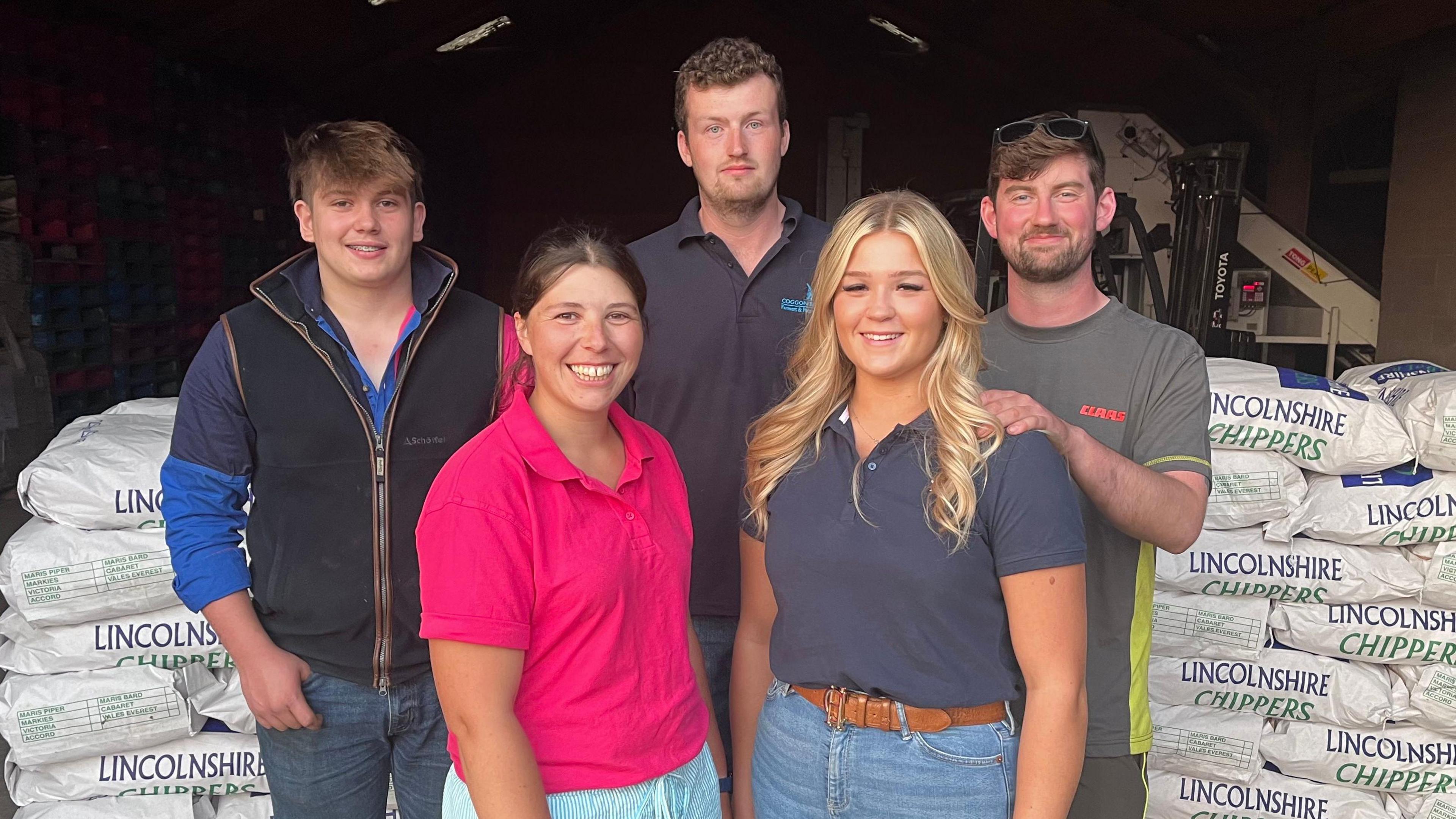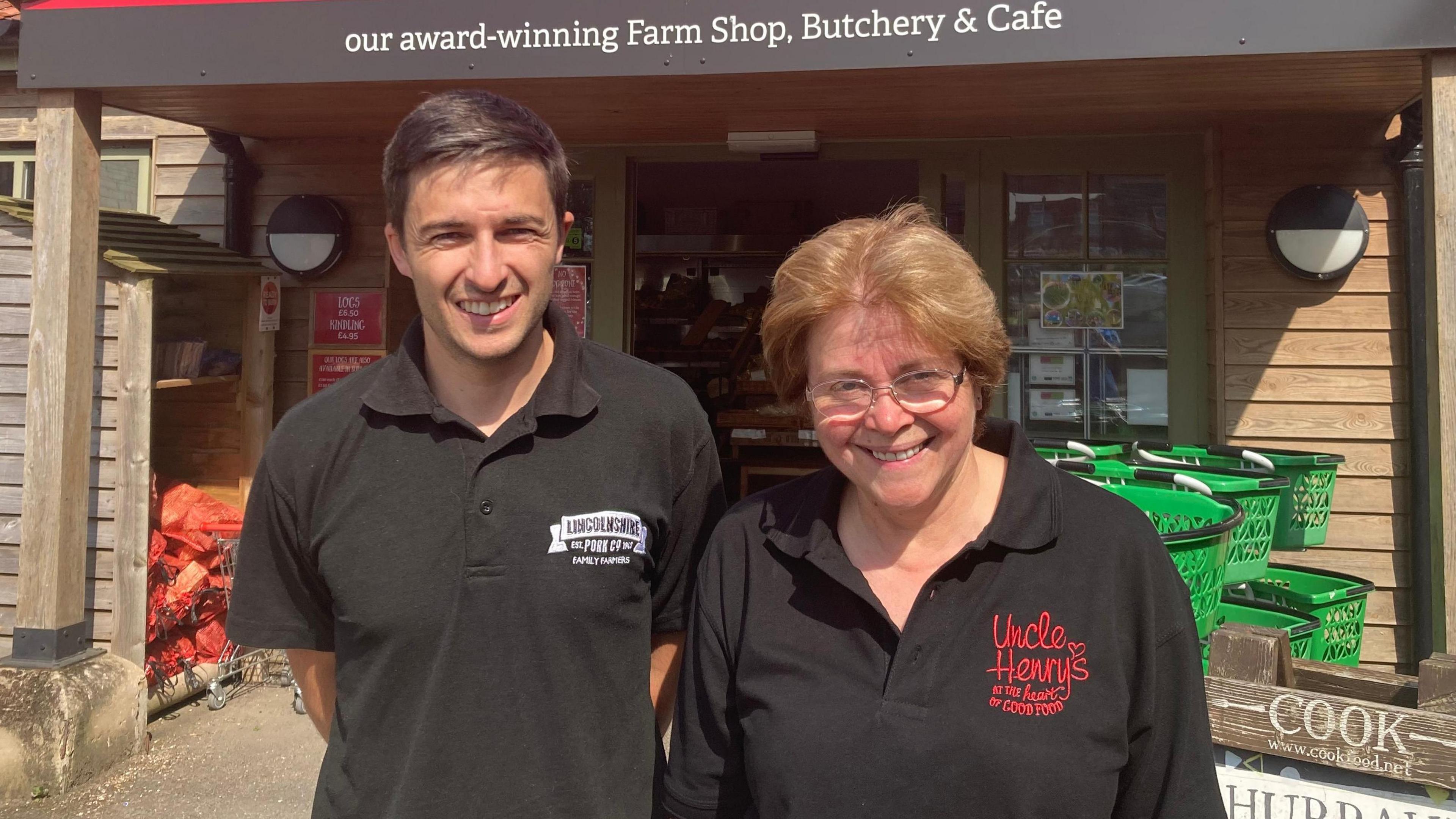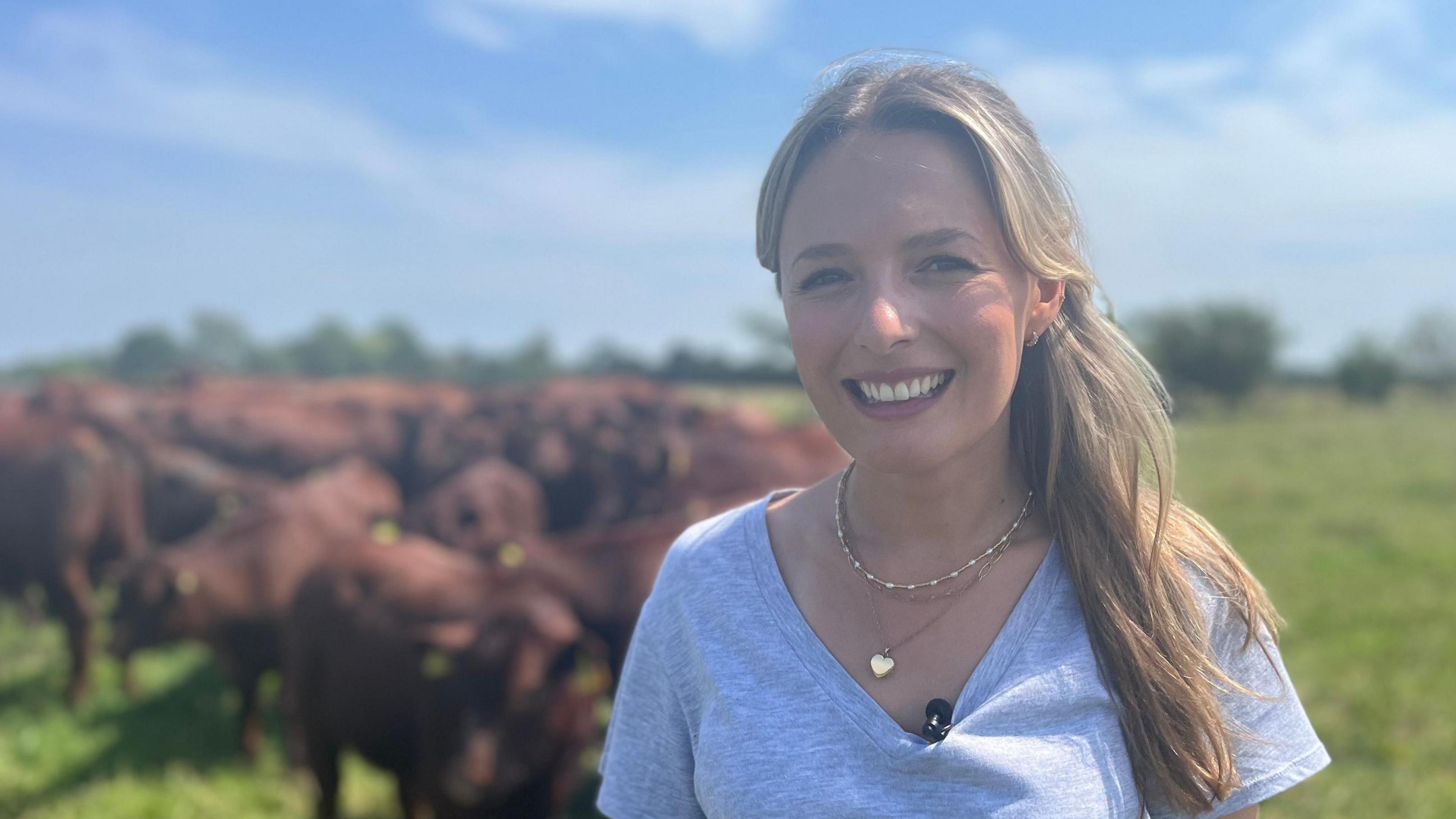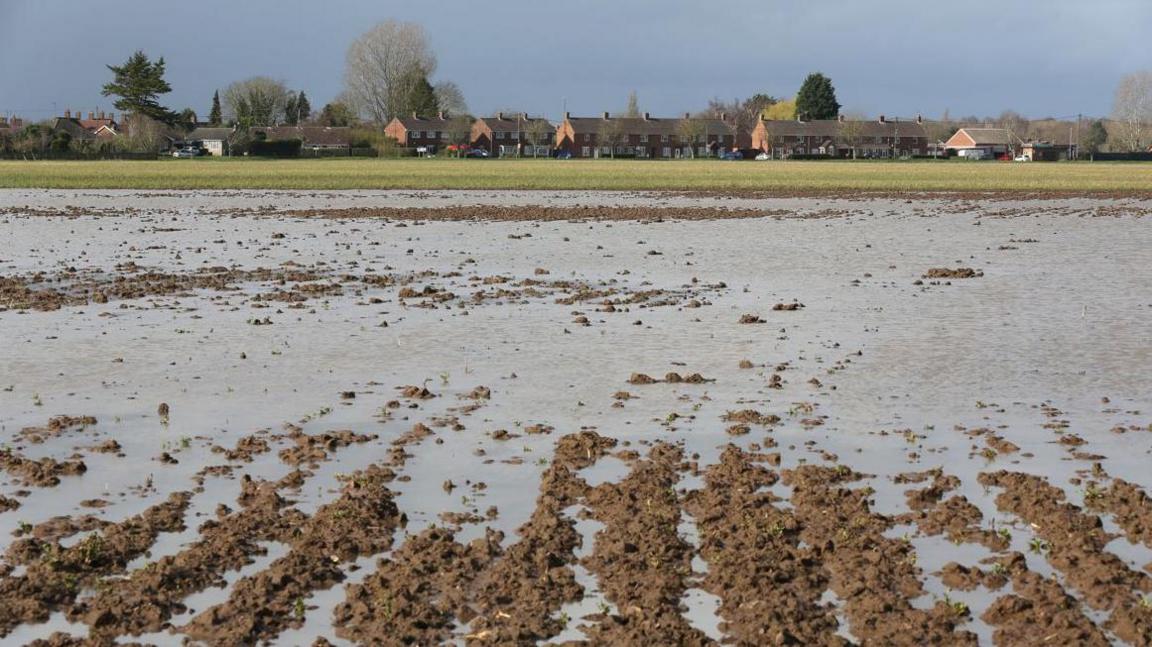Farmers compare harvest time to 'exam results day'

Josh Addlessee (far right) with fellow members of Corringham Young Farmers' Club
- Published
If you think you are busy during the summer holidays, balancing childcare and work, imagine being a farmer.
August is the start of the UK’s main harvest period. Growers often have short windows of opportunity when the weather and humidity align to bring in crops that their livelihoods depend on.
The BBC’s Farmwatch project is shining a light on farming, following the highs, lows, laughs and tears of those who feed the nation.
Here, a group of Lincolnshire farmers tell us their thoughts ahead of harvest.
'Way of life'
Josh Addlessee is bracing himself for long days repairing and maintaining machinery used for the harvest in August but he said: “I could never work in an office!”
The 24-year-old agricultural engineer enjoys the unpredictability of outdoor work, and said "no day is ever the same".
Prior to his current job, he worked as a labourer on his grandfather’s farm.
He admitted there were more lucrative professions for young people but he said "farming is a way of life" rather than simply a job.
Mr Addlessee, from West Woodside, North Lincolnshire, has been a member of Corringham Young Farmers’ Club for seven years. The organisation offers support to members during harvest.
A family affair

Sam Ward and his mother Meryl outside their Lincolnshire farm shop, which has helped them diversify
Arable farmer Sam Ward likens the harvest to “exam results day”.
“You get to see all of your efforts throughout the year come to fruition,” he said.
“Sometimes it is good and sometimes it is bad, but you take it for what it is.”
The 32-year-old works alongside his mother, Meryl Ward, a pig farmer, at their farm in Grayingham, near Gainsborough.
They will be harvesting peas for Birds Eye’s frozen range, sugar beet for Silver Spoon, and potatoes for most major supermarkets.
They also rear 40,000 pigs a year with their herd producing the equivalent of 1,300 tonnes of sausages and 400 tonnes of bacon.
Ms Ward said “so much can go wrong” in farming, including unpredictable weather, animal disease and crop failures.
The fourth-generation farmer, who is thinking about retiring, said the risks involved were why the family had diversified from only rearing pigs. They also run a farm shop and a cafe serving local produce.
“Hopefully if there is something that is going wrong in one place, there is something else that is going really well,” she said.
A privilege to farm

Martha Hayes said the quiet period in cattle farming allowed her to concentrate on the harvest
The pressure may be on to harvest crops in a timely manner, but Martha Hayes, from Spridlington, north of Lincoln, said she would not be selling her wheat until the price rose early next year.
The 28-year-old’s crop will be used in animal feed that will ultimately help keep the UK's meat industry going.
But the fourth generation farmer’s main passion is her own prized herd of Lincoln Red cattle.
“We know each individual cow here,” she said of the 90-strong herd.
"The priority always has to be that these girls have the absolute best quality of life, and that their welfare comes before anything else."
She added that despite her job being all-encompassing, she felt privileged.
"I’ll be farming for my entire life, I know that – even if I have no money!”
Follow BBC Lincolnshire on Facebook, X (formerly Twitter), external, and Instagram. Send your story ideas to eastyorkslincs.news@bbc.co.uk, external
Related topics
Related to this story
- Published26 July 2024
